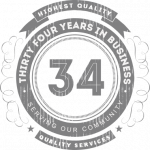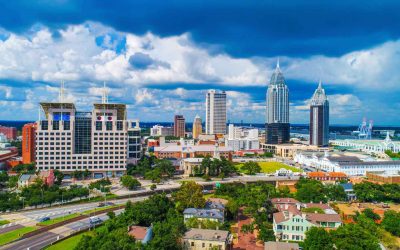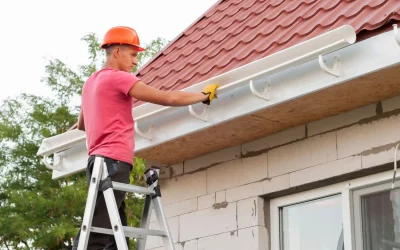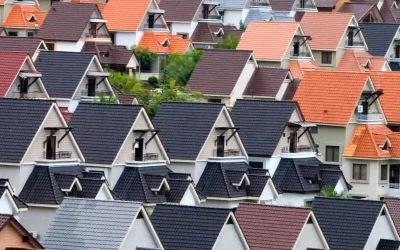Your business’s roof does more than just provide shelter; it’s a critical part of your building’s overall structure, protecting everything inside from the elements. Understanding the basics of commercial roofing can help you make informed decisions about maintenance, repairs, and when it’s time for a replacement. In this guide, we’ll explore the essentials of commercial roofing, including common materials, signs you need a repair, and tips for working with a commercial roofing contractor.
What is Commercial Roofing?
Commercial roofing systems handle the unique demands of commercial properties. Unlike residential roofs, commercial roofs typically feature a flat or low-slope design, which makes them more susceptible to standing water, debris accumulation, and weather-related wear and tear. Materials like TPO, EPDM, and metal offer the durability needed to manage these challenges effectively.
Common Types of Commercial Roofing
Choosing the right roofing material for your business depends on factors such as your budget, climate, and the building’s structure. Here are some of the most popular types of commercial roofing systems:
- TPO (Thermoplastic Olefin): Known for its energy efficiency and durability, TPO is a popular single-ply roofing membrane. It reflects sunlight, which helps lower energy costs, and is resistant to UV rays, chemicals, and punctures.
- EPDM (Ethylene Propylene Diene Monomer): People value this rubber roofing material for its flexibility, weather resistance, and longevity. It’s a great option for businesses in areas with variable weather conditions.
- Metal Roofing: Metal roofs made from steel, aluminum, and copper offer longevity, a sleek look, and the ability to withstand harsh weather. They can last 40 to 50 years or more with proper maintenance.
- Modified Bitumen: Combining layers of asphalt and reinforcing fabrics, modified bitumen offers excellent water resistance and durability, making it suitable for flat roofs that endure heavy foot traffic.
- PVC (Polyvinyl Chloride): This single-ply membrane resists chemicals, fire, and grease, making it ideal for restaurants and other commercial buildings with rooftop HVAC units.
Signs You Need Commercial Roof Repair or Replacement
A well-maintained roof can last decades, but it’s important to recognize the signs that your roof may need attention. Here are some signs that you may need commercial roof repair or even a full roof replacement:
Leaks and Water Damage: Stains on ceilings, walls, or the presence of water indoors can signal roof damage. Immediate attention can prevent further damage to your property.
Blistering or Bubbling: Bubbling on the roof surface often means there’s moisture trapped beneath the roofing membrane, which can weaken the overall structure.


Damaged or Missing Flashing: Flashing helps seal the roof at critical points, such as edges and where the roof meets vertical walls. Damaged flashes can allow water to enter the building.
Visible Membrane Damage: Tears, cracks, or punctures in the roofing membrane expose the roof to the elements and can quickly escalate into bigger issues.
Rising Energy Bills: A poorly insulated or damaged roof can cause your energy bills to spike as your HVAC system works harder to maintain a comfortable temperature.
The Importance of Working with a Commercial Roofing Contractor
To ensure your commercial roof remains in peak condition, it’s essential to work with a reputable commercial roofing contractor. They bring the experience, skills, and equipment needed to perform high-quality installations, repairs, and maintenance. Here’s what to expect when working with a professional:
- Roof Inspections: Regular inspections help catch problems early, saving you money on extensive repairs down the line.
- Repair Services: Whether it’s fixing leaks, replacing damaged sections, or addressing ventilation issues, professional contractors ensure repairs are done correctly the first time.
- Roof Replacements: When repairs are no longer sufficient, a contractor can guide you through the replacement process, helping you choose the right materials and ensuring a seamless installation.
- Maintenance Programs: Regular maintenance is key to prolonging the lifespan of your commercial roof, preventing minor issues from turning into costly repairs.
Choosing the Right Roofing Contractor
Finding the right contractor can make all the difference to the health of your roof. Here’s how to choose the best commercial roofing contractor for your business:
Check Their Experience: Look for contractors with a solid record of accomplishment in commercial roofing and expertise in the type of roof you have.
Verify Licensing and Insurance: Always work with licensed and insured contractors to protect yourself and your property.
Read Reviews and Ask for References: Look for feedback from previous clients to gauge the quality of their work and customer service.
Get a Detailed Estimate: A trustworthy contractor will provide a clear, detailed estimate that outlines the costs, scope of work, and timeline.
Protect Your Business with Expert Commercial Roofing Services
Your commercial roof is a vital investment that protects your business and everyone inside. Regular maintenance and timely repairs can extend the life of your roof, saving you money and headaches eventually. If you notice any signs of damage or it has been a while since your last inspection, don’t wait until it’s too late.
Ready to safeguard your business with professional commercial roofing services? Contact us today for a free inspection and expert guidance on keeping your roof in top shape.





